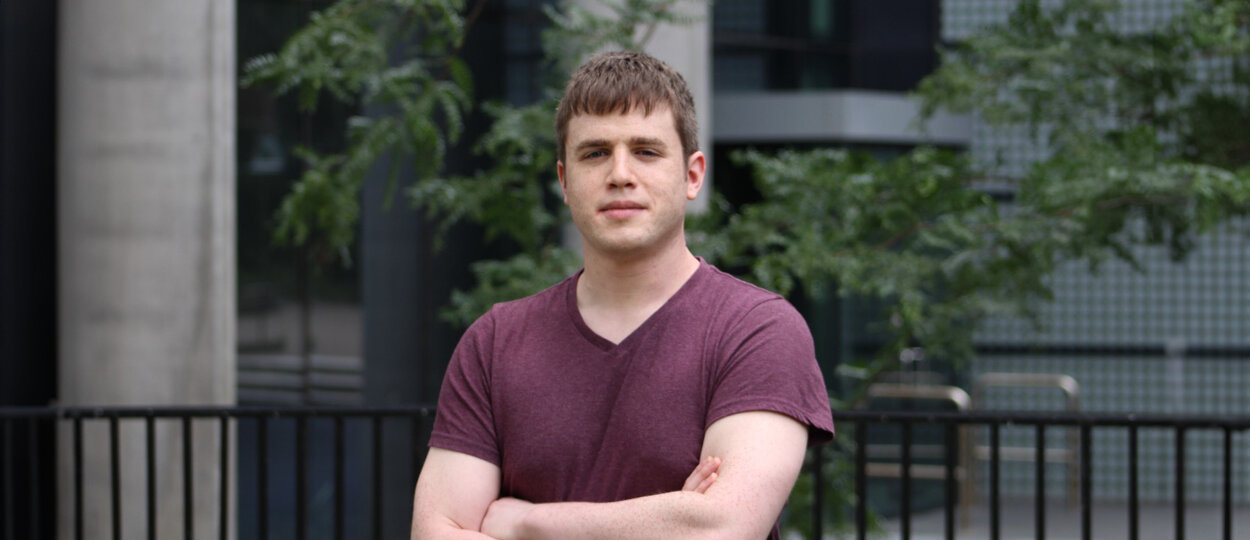What is your academic background and why is your current area of research important?
I work in synthetic biology, which is essentially repurposing natural biological molecules to solve problems. My research focuses on diagnostics and other sensing technologies, using the amazing sensitivity and versatility of biological systems to create new assays.
What led you to your current supervisor’s research group?
I was drawn to my supervisor Dr. Keith Pardee’s focus on synthetic biology, specifically his work on developing toehold switch diagnostics to make a low-cost test for Zika virus. I think there is a huge amount of unrealized potential for biological systems to meet these kinds of needs. My PhD work focused on continuing this line of research using a novel output to further reduce assay costs: glucose, measurable with a standard, $10 glucose meter. In my postdoctoral work, I am furthering this work by developing an automated diagnostic platform, in addition to other projects aimed at reducing the cost and increasing the availability of biological assays.
What are some of the challenges you had to overcome while pursuing your research?
Performing independent research is quite a difficult task, which cannot really be learned in advance. When I first started in the lab as a summer research student, while I understood the principles of techniques like PCR, cloning, or gel electrophoresis, it was challenging to begin planning, performing, and troubleshooting these experiments independently. It’s the kind of thing that you really need to learn by doing, ideally with someone more experienced helping you along. Over time, I developed my skills and became comfortable enough to begin guiding new students through the same process I had gone through, which was its own new skillset I had to learn, but was certainly rewarding. And of course, when I was finishing my PhD I had to write my thesis, the longest writing project I’ve ever done by far.
How do you see your current research playing a role in your career?
I will certainly make good use of the skills I’ve learned here in my future career. I plan to continue doing research in biological assay development, so this is valuable experience. I believe my next steps will build off my current research projects, as I think there is significant potential for my research to play a role not just in human health, but also agriculture and environmental monitoring as well.
What do you like to do when you are not working on research?
I like to play board games; I’ve built up an extensive collection over the years since I first bought Settlers of Catan to play with my friends in high school. We still try to meet up a few times a year to play something and catch up.
I also enjoy the outdoors, I like going for hikes and especially exploring new places. I visited San Francisco for the first time this summer, and really loved visiting the Muir Woods and Angel Island.
More News
Image

Trade tariffs on pharmaceuticals ‘not the way to go’: U of T expert releases new study showing disruptions and cost increases
Trade tariffs on Canadian pharmaceuticals expected to increase costs in the U.S. and strain drug...
Read More
Image

Northern Ontario rotation inspires new perspective on pharmacy practice
Alina Montgomery’s rotation on Manitoulin Island demonstrated the importance of pharmacists in northern communities
Read More
Image

PharmaSEE mentor shares breadth of opportunities in pharmacy profession
With patient care and industry experience, Seann Seto shares perspectives and insights with PharmD students.
Read More
